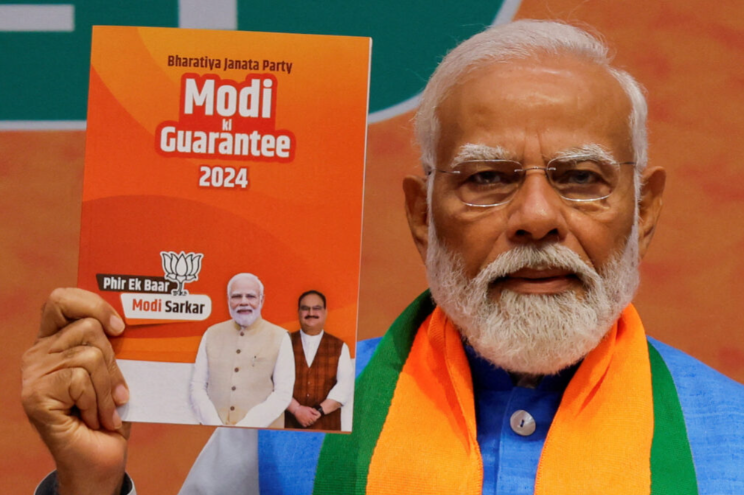The challenge for INDIA (GS Paper 2, Polity)

Introduction:
- When dramatic expectations are set through media management, a setback looks like defeat.
- When parties and leaders are believed to be invincible, retaining power with constraints looks devastating.
- This is the BJP’s predicament. After enjoying two consecutive terms with an unfettered majority, the BJP can now return to a third term with crutches.
BJP's Third Term:
- Reduced Strength in Lok Sabha: Compared to the past five years, unless they increase their seat tally through financial means.
- Robust Vote Share: Despite setbacks, maintaining nearly 38% vote share.
- Need for Compromises: To form the government and remain in power, the BJP must make compromises internally and with allies, challenging its leadership.
Narendra Modi's Role:
- Driver of Success and Underachievement: Modi's leadership is central to the BJP's successes and shortcomings.
- Electoral Machine: The BJP’s electoral success, especially in south and east India, credits Modi, while setbacks indicate his limitations.
- Brand Modi: Understanding Modi as a brand is crucial to analyzing BJP’s achievements, implications, and future impact on India.
BJP’s Political Discourse:
- Changed Terms of Discourse: BJP has shifted political focus, condoning economic hardship for distant dreams and promoting religio-cultural narratives.
- Hindutva Milestone: Achieving the goal of making Hindutva central to Indian culture and politics.
Electoral Outcome Analysis:
- Historical Context: Current results fit into historical political shifts since the 1990s.
- Campaign Strategies: BJP's use of religious identity versus Opposition's focus on distribution and social justice.
- Brand Modi’s Appeal: Represents a saviour figure, strong personality, devout Hindu leader, demagogue against “the other,” and promoter of economic aspirations.
Twin Factors of Modi Regime:
- Hindutva and Personality Cult: Central to Modi’s governance and unlikely to be abandoned despite electoral setbacks.
- Tension and Co-existence: A leader with a divine mission and routine political compromises, alongside popular Hindutva approval and emerging Hindutva fatigue.
Implications for the Opposition:
- Cautious Interpretation: Economic hardships have impacted BJP, but its core agenda remains un-rejected by voters.
- Challenge of Countering Hegemony: Opposition lacks ideological strength to counter BJP’s cultural and religious dominance.
- Potential Momentum: With BJP’s reduced strength, isolating it might gain traction, but non-BJP parties must find the will to challenge effectively.
Enduring Support for Modi Regime:
- Foundational Agenda Endorsement: Despite economic and democratic challenges, a significant citizenry segment supports the regime’s core agenda.
- Cultural Transformation: BJP's aim to homogenize and transform India’s religious and cultural identity remains strong despite setbacks.
Opportunity for Opposition:
- Staging a Counter: The election outcome provides an opportunity, not a victory, for non-BJP parties to define their politics and challenge BJP’s agenda.
Conclusion:
- With a truncated strength of the BJP, the politics of isolating it may gain momentum but the critical question is whether the non-BJP parties — in Opposition or in power — have the energy and will to attack the BJP on a front where it is far too strong.


